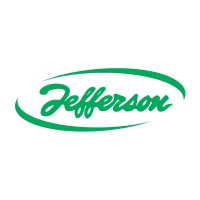
Jefferson Solenoid Valves
Jefferson Solenoid Valves is a leading manufacturer with more than 50 years in the market developing a complete line of high quality solenoid valves and level controls. Jefferson’s products have international recognition in accordance with approvals of UL, CSA and ISO 9001, among others, which has permitted Jefferson Solenoid Valves to introduce its product range in most countries world wide. Jefferson's current catalog of standard products includes over 3,000 models between solenoid valves and magnetic level switches which satisfy different needs and industrial requirements to control the most diverse liquids and gases such as water, air, steam, oils, refrigerants, oxygen, liquid nitrogen, corrosive fluids and many others.






